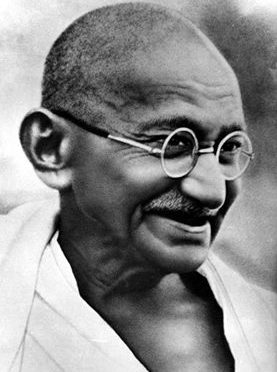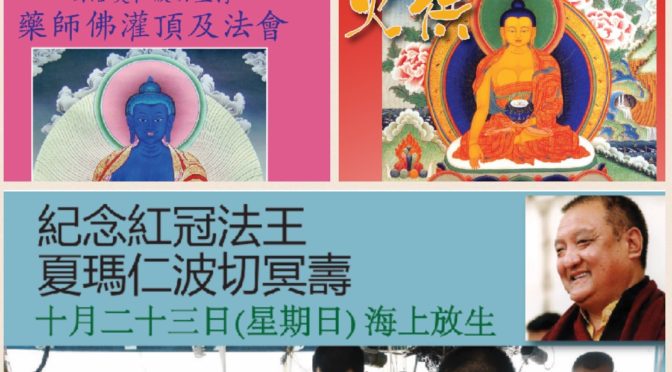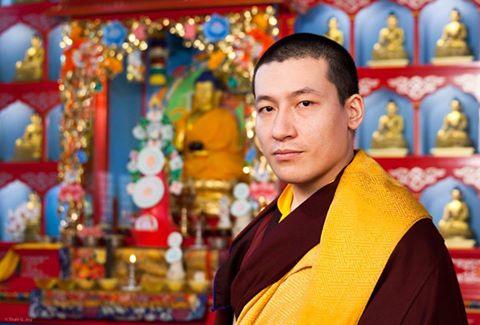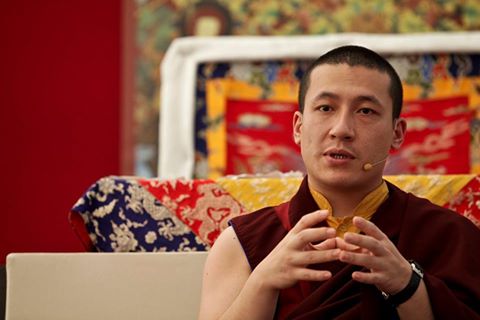 17 November
17 November
為何聖賢的逝世是最偉大的教法
過去幾年,我們看到許多傑出偉人的逝世。第十七世大寶法王嘉華噶瑪巴泰耶多傑對這種偉人走向涅槃的力量和其重要性作了珍貴的開示。 沒有任何一位佛能逃脫死亡。我們的共同觀念可能認為覺悟的人能以某種方式克服死亡。然而,這是對什麼是覺悟存在錯誤的理解。這主要是因為我們認為和誤解死亡是事物的終結:一種不能被喚醒的睡眠狀態。
在佛法而言,每樣事情的存在,無論是出生、活著還是死亡,都是值得欣喜和被同等重視的。因此,作為佛法的修持者,我們應將我們的身、語、意完全付諸於聞、思、修,以令充分意識到出生、活著和死亡的階段是自然並相互依存的。
通常我們的不安、迷惘和恐懼源於不瞭解生、老、病、死是生命中最自然的一部分。由於這種不了解 – 不接受這些生命的部分是自然的- 抗拒因此造成,例如:過於恐懼活著,以致視活著為不自然的事情,看待死亡作為逃避活著。同樣,有時,過度害怕死亡,導致對活著持一種非自然的看法,因此,就會試圖找各式各樣的方法來延長一個本質上是短促的生命。
在還沒有接受不可避免的生、老、病、死就是未來這個事實之前,活著與死亡的未來會造成無止境的驚恐。
當佛陀釋迦牟尼(公元前563-483)在菩提樹下證悟時,他第一次在他生命中看到生至死這些階段的存在並非如他想象中的可怕和不安。他對出生、活著和死亡的錯判令他逃離皇宮生活,去尋找虛無飄渺的靈丹妙藥。最終他發現的靈丹妙藥是簡單地讓一切順其自然的面對生活和死亡。
這平靜是他放棄奢華生活後一直所追尋的。他看到當因緣成熟時,沒有人能夠改變果報。唯一可以做而有意義的事情就是讓它順其自然。因此,獲得證悟後,佛陀生命的每一方面都是一種如何讓事情順其自然、如何活著、如何面對死亡的訊息。
只因為他是佛陀並不代表符合我們對完美生命的概念。在他的一生中,佛陀和他隨行學習的弟子也曾經歷飢餓,疾病甚至身體受到傷害。但這些都沒有影響他的平靜或動搖他的智慧。
當生命面對不可避免的結束時,佛陀平靜地迎接死亡。佛陀的死亡沒有為他帶來任何焦慮、恐懼或恐慌,因為他明白,他所經歷的是最自然的事情,而且並沒有什麼問題。
我相信這是最偉大的教法之一。是的,一個偉人的逝世是最偉大的教導之一。它甚至比佛陀宣說的八萬四千法門和三轉法輪更有力,更簡要,更直捷和更簡單。
佛陀或偉大人物的離世可以令我們意識到一切無常。這教法能有效地將我們從日常的永恆睡夢中搖醒和喚醒,不然我們難以從夢中醒覺。
因此,不受困於我們對死亡的固有觀念,我們能見證一個偉大人物的死亡直到他或她荼毘火化時,將成為我們生與死這精神道路上一個有無限價值與意義的教誨。
Why being present when a great being dies can be one of the greatest teachings
In the last few years, we have witnessed the passing of many eminent masters. Reflecting on this, Thaye Dorje, His Holiness the 17th Gyalwa Karmapa, offers a teaching on the power and significance of great beings passing into parinirvana.
Not even a Buddha can escape death. Our common perception might be that enlightened beings have in some way overcome death. However, this would be a misunderstanding of what it means to be an awakened being. This is largely because we identify and misinterpret death as the end of things: a state of sleep that one can’t be woken up from.
In Buddhism, every aspect of existence, be it birth, life or death, is celebrated and valued equally. Therefore, as Buddhist practitioners, we fully dedicate our body, speech and mind to the practices of listening, contemplation and meditation, in order to recognize with full awareness the stages of birth, life and death as both natural and interdependent.
Most often, our restlessness, confusion and panic originates from not knowing that birth, ageing, falling ill and death are the most natural parts of life. Due to this not knowing – meaning not accepting these parts of life as natural – contractions are caused, for example: to fear living so much that one looks at living as unnatural and looks at death as an escape from living. Similarly, at times, fearing death so much that one has an unnatural perspective towards living, and therefore one tries to find all kinds of ways to prolong one’s essentially fleeting life.
Until this acceptance is initiated, the inevitable tomorrows of birth, ageing, falling ill and death, the tomorrows of living and dying, cause endless panic.
When Buddha Shakyamuni (563-483 BCE) attained the fully enlightened state under the Bodhi tree, for the first time in his life he saw that these stages of existence weren’t as frightful and disturbing as he had imagined. His misguided assessment of birth, living and death had driven him to escape from his princely life, and to search for some kind of elusive elixir. The elixir he finally discovered was to simply let things be.
This was the peace he had been searching for when he renounced his life in luxury. He saw that when causes and conditions gather, there is nothing one could do to change the results. The only meaningful thing that can be done is to let things be. Therefore, after he attained enlightenment, every aspect of his life was a message of how to let things be, how to live, and how to die.
Just because he was the Buddha doesn’t mean that he conformed with our concept of a perfect being. There were times during his life when he and his entourage experienced hunger, sickness and even physical injuries. But those didn’t disturb his peace or shake his wisdom.
When the inevitable end of his life came, he entered peacefully into the passage of death. He died without being affected by any anxieties, without any fear or panic, because he understood that what he was experiencing was the most natural way of things, and there was nothing wrong about it.
I believe that this is one of the greatest teachings ever. Yes, one of the greatest teachings comes when a great being dies. It might even be far more powerful, condensed, direct and simple than all of the 84,000 teachings of the Buddha and the three turnings of the Dharma Wheel.
The departure of a Buddha or great being can help us realize that everything is impermanent. This teaching has the potency to shake us and awaken us from the daily dream of permanence, which is otherwise so difficult to wake up from.
Therefore, to be present when a great being is dying – untainted by our usual perspective on the concept of death – until his or her cremation, can be a teaching of immense value for our own spiritual path during life and death.
(中文翻譯由本中心翻譯小組負責。若有錯漏,請見諒。節錄或載列文章內容以原文為準。)


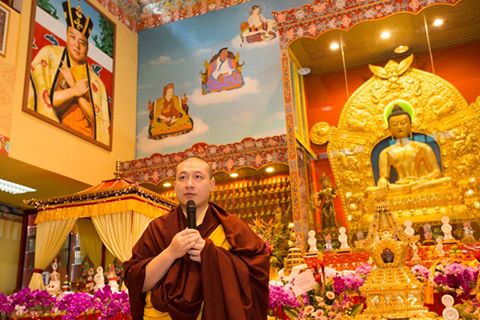
 21 October
21 October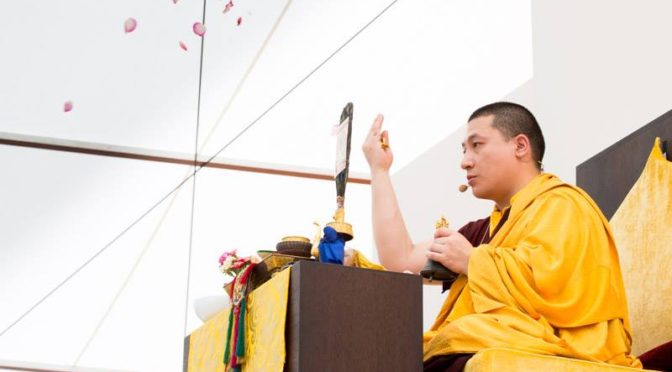
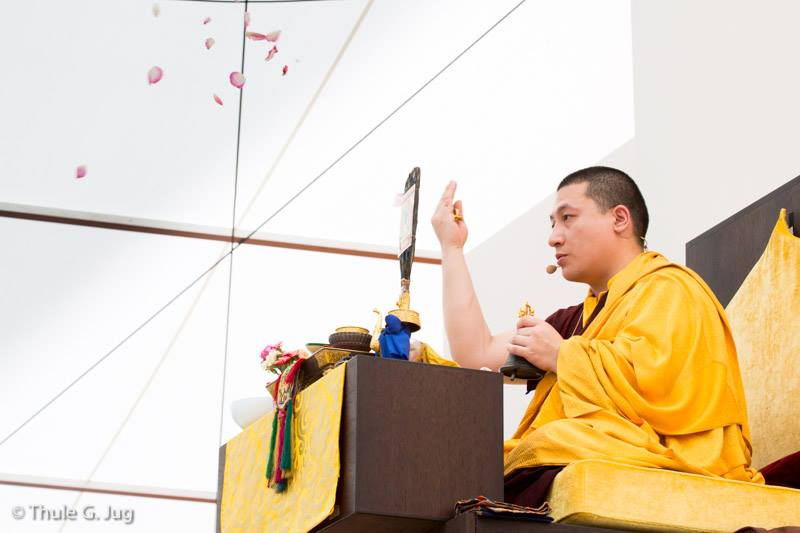
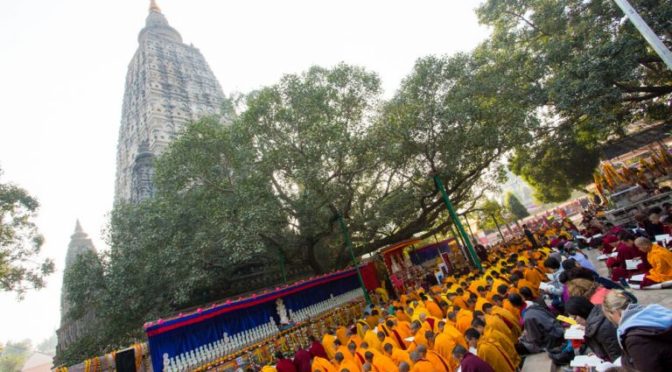
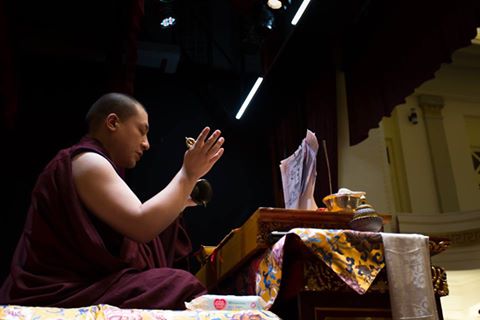
 7 October
7 October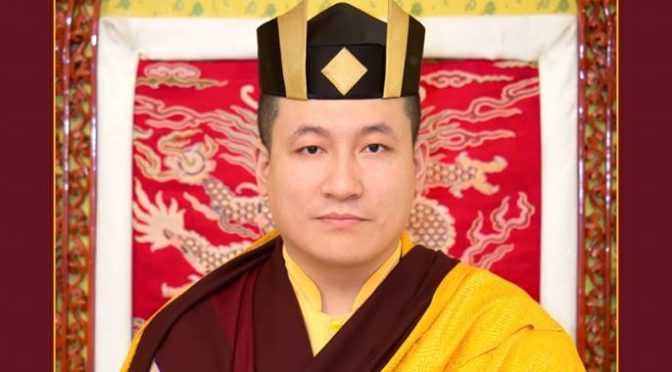
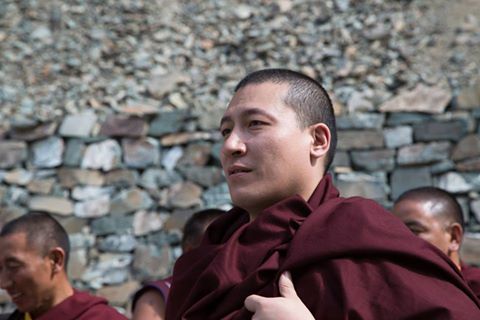
 27 September
27 September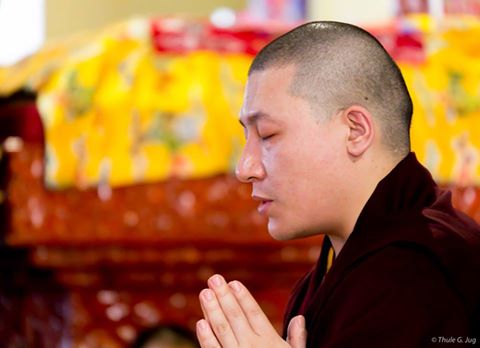
 20 September
20 September